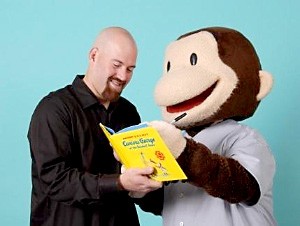Publishers fight cheap books
Jason Steger
July 15, 2009

- “We won’t have Australian authors if we don’t have Australian publishers,” says writer Peter Temple.
BOOKS could be cheaper in Australia if the Federal Government implements recommendations in a report issued yesterday by the Productivity Commission.
But it faces a hostile campaign from the bulk of the book industry, which says the commission’s report is flawed and will damage publishers, printers, smaller booksellers, authors and Australia’s cultural wellbeing.
The commission urged the Government to scrap territorial copyright protection for writers and publishers to put Australian book prices more in line with those in the US and Britain.
In its final report on the parallel importation of books, it recommended the lifting of all restrictions after a three-year adjustment period; the rejigging of financial assistance to the book industry; a new survey by the Australian Bureau of Statistics; and a review of the brave new world after five years.
It said the current legislation, under which Australian publishers have 30 days to publish editions of books published overseas or face competing editions, stopped booksellers from importing “cheaper or better-value-for-money editions”.
The recommendations were welcomed by Dymocks boss Don Grover, the driving force behind the Coalition for Cheaper Books. However, he told The Age a three-year delay would cost consumers hundreds of millions of dollars, “and that’s unreasonable”.
Opponents of the change said they would turn their attention to lobbying. The majority of the 560 submissions received by the commission, including those from state and territory governments, opposed the lifting of restrictions.
Scribe publisher Henry Rosenbloom, who has funded much of his local publishing by acquiring rights to overseas titles, said there was no guarantee of cheaper books. “It’s crazy to recommend policies now that will lead to the destruction of significant parts of Australian publishing, book selling, writing and printing that are dependent on exchange rates and the behaviour of booksellers.”
Penguin chief executive Gabrielle Coyne warned that if the Government adopted the recommendations, it represented a “move away from evidence-based policy”.
Authors such as Tim Winton, Richard Flanagan, Kate Grenville and Morris Gleitzman have spoken out strongly against any change to territorial copyright. Yesterday crime writer Peter Temple added his voice. “We won’t have Australian authors if we don’t have Australian publishers,” he said. “If you think Australian publishing is important, if you want them to take risks on authors, backlists, bringing on talent, then you care more about product than simply profit. If you think it’s important they stay in business, you don’t do this to them.”
The Printing Industries Association of Australia claimed the recommendations put at risk hundreds of jobs. PIA policy manager Hagop Tchamkertenian told The Agethat Maryborough “would be devastated. One in four workers depends on the book printing industry.”
Michael Heyward, publisher at Text, pointed out the irony of the commission recommending changes to benefit the consumer but advocating a review of the grant system that could mean higher taxes.
The Australian report focuses on job losses:
Cheap books will cost ‘at least 500 jobs’
July 15, 2009
Article from: Australian Associated Press
A PROPOSAL to lift copyright restrictions on books may deliver cheaper prices but at a cost of more than 500 jobs, a union says.
A Productivity Commission report yesterday called for an end to century-old laws that limit the importation of cheaper books from overseas.
Supporters say consumers are overcharged $200 million a year because of the restrictions and that dumping them will boost competition and cut prices.
But there is no guarantee this will happen, the Australian Manufacturing Workers Union said.
What is more certain is the direct loss of 500 jobs within the publishing and printing industry, the union’s print division secretary Steve Walsh said.
Other estimates put the figure at 3000.
“In this economic climate, where every job is precious, it would be terrible news for our valuable print industry,” Mr Walsh said.
“It would allow books printed overseas a major advantage over Australian suppliers.”
Many local authors believe scrapping the laws will strip them of income.
Writer Tim Winton used his acceptance speech for his Miles Franklin award in June to defend the legislation as it stands.
Mr Walsh said: “If retailers … are so concerned for access to cheaper books, they should revise their profit margins rather than asking printers to lose business in pursuit of books printed cheaply overseas.”
It will be more than interesting to see (especially in these economic times) if the Federal Government acts on the advice of the Productivity Commission.





